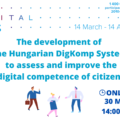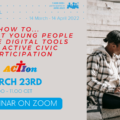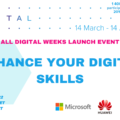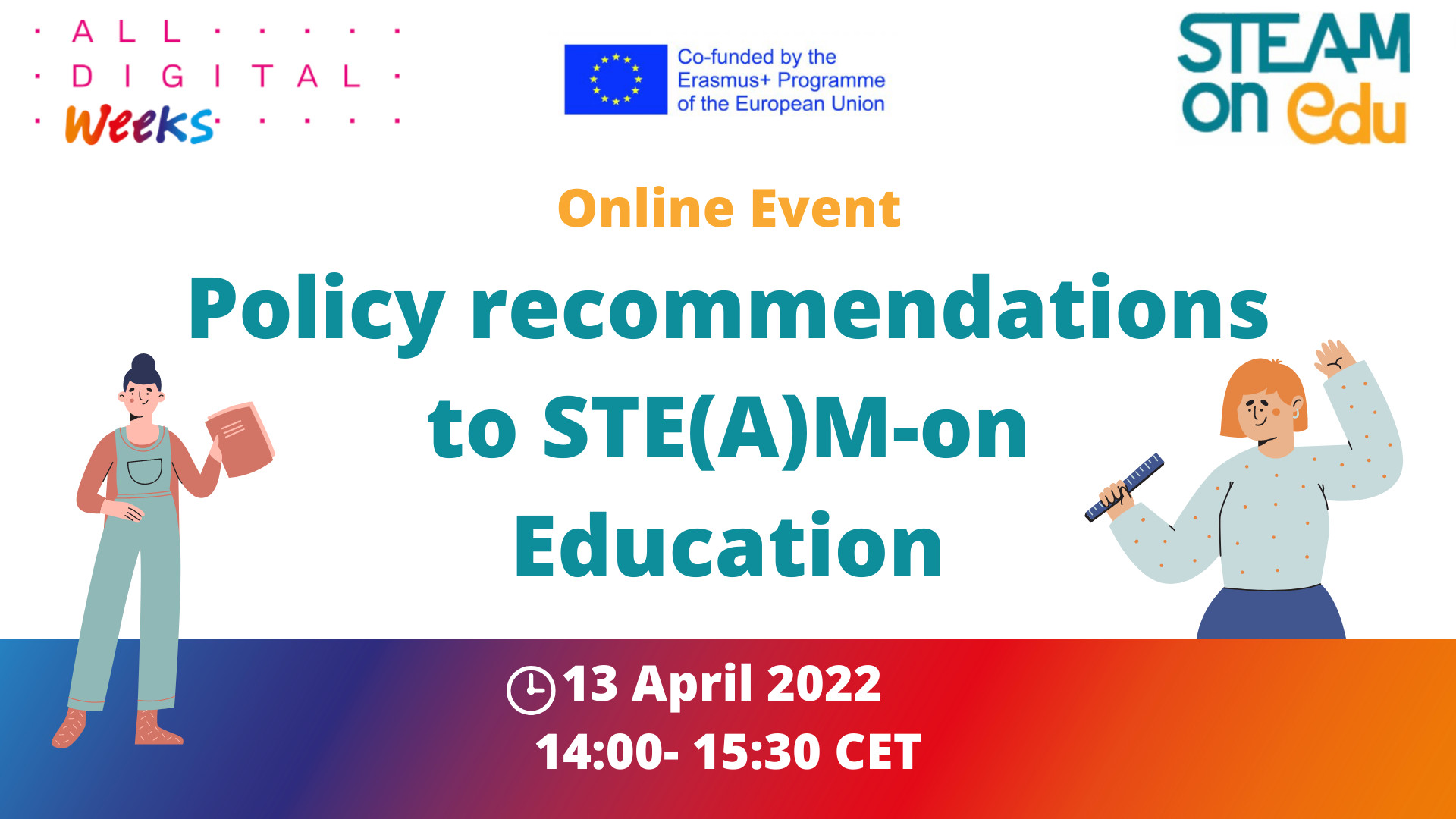
31 Mar 13.04 Policy recommendations to STE(A)M-on Education
31 Mar, 2022
STE(A)M related disciplines are becoming increasingly relevant to enhance digital skills and overall problem-solving competences for the digital age. That is why the Digital Education Action Plan (2021-2027) correctly identifies the key role of educators in delivering high-performing digital and STE(A)M education. In this context, the Policy Recommendations developed within the STEAMonEdu E+/KA3 project are highly relevant. STEAMonEdu focused on the professional development of STE(A)M educators, mainly by producing a competence framework that reflects the multiple roles they assume during STE(A)M teaching practice. As a consequence, the recommendations are based on the needs, outcomes, results, and lessons learnt from the project activities, which engaged all relevant stakeholders within the fields: teachers, educators, learning centres, education managers, and policymakers. Within the ALL DIGITAL Weeks 2022 awareness campaign they would contribute to the overall discussion on STE(A)M education by sharing the policy recommendations.
The event is therefore targeted to educators, learning centres, educator managers and policymakers at any level of formal, non-formal and vocational education and aspires to explore STE(A)M education policies and move them forward at European, national and local level.
Invited speakers will provide more details on the STE(A)M educator competence framework and associated tools, the STEAMonEdu training programme and Community of Practice, and they will discuss the importance of giving support and life to dedicated STE(A)M infrastructures, how to facilitate exchanges of students, educators, and policymakers.
Watch the event here
Agenda
14:00 – 14:05 Welcome to the ALL DIGITAL weeks by Peter Palvolgyi (ALL DIGITAL)
14:05-14:10 Overview of STEAMonEdu project by prof. Achilles Kameas (Hellenic Open University) (Presentation)
14:10 – 14:20 Overview of European Policies on STE(A)M education by Claudia Matera (ALL DIGITAL) (Presentation)
14:20– 15:20 Panel Discussion on STEAMonEdu Policy Recommendations moderated by Claudia Matera (ALL DIGITAL) (Presentation)
Panellists:
Achilles Kameas, Professor of Pervasive and Mobile Systems with Hellenic Open University (HOU)
Athanasios Iossifides, Associate Professor at International Hellenic University
Spyros Papadakis, School advisor and counselor at the Greek ministry of education
Laurentiu Bunescu, Head of Digital Education Programmes at Fundatia EOS Romania
Paolo Russo, General Secretary at Stati Generali dell’Innovazione
Jutta Schneider, Project Lead at Helliwood media & education
Esther Subias, Project Manager at Colectic
15:20– 15:30 Q&A and general open discussion session
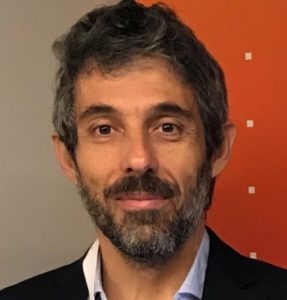 Achilles Kameas
Achilles Kameas
Professor of Pervasive and Mobile Systems with Hellenic Open University (HOU)
Dr.Eng. Achilles D. Kameas is Professor of Pervasive and Mobile Systems with Hellenic Open University (HOU), Deputy Dean of the HOU School of Science & Technology, Head of DAISSy Research Group, Scientific Coordinator of Research Unit 3 at Computer Technology Institute and Press “Diophantus” and member of the ESCO Group of experts, the CEN PC428 on e-competences and ICT Professionalism, the CEPIS IT Professionalism in Europe, the EADTU Course & Curriculum pool of experts, the ELOT Standardization Committee on Smart Cities and the CEDEFOP Community of VET practitioners (WG on integration of migrants). He has contributed to e-CF 3.0, DigComp 2.1, ESCO on ICT and ISO 37101.
He has participated in more than 45 EU and national R&D projects (coordinated more than 10 of them), published over 150 scientific articles and received more than 2000 citations. For over 25 years, Achilles has been promoting science, STEM education and ICT and digital competences to young people, professionals, policy makers, citizens and vulnerable groups at regional, national and European levels. His current research interests include peer learning platforms and social systems, IoT and mobile computing systems, digital skills, profiling of job roles and flexible learning paths.
 Athanasios Iossifides
Athanasios Iossifides
Associate Professor at International Hellenic University
From 1999 to 2010 he was with COSMOTE SA, first as a telecommunications engineer and then as the head of the Network Management Section of North Greece. From 2010 to 2019 he was with the Department of Electronics Engineering and since May 2019 he is with the Information and Electronic Engineering department of International Hellenic University, teaching courses on Signal Processing, Telecommunications, Wireless, and Mobile Communications, IoT, as well as Technical Presentation and Writing, in undergraduate and postgraduate programs of study. He was the academic Erasmus+ coordinator of his department and a member of the Erasmus Institutional Coordinating Committee from 2010 to 2018. From 2018 to 2020 he was the Director of the Advanced Electronic Systems Lab. He has participated in the setup, implementation, and support of several programs of study in higher education and has great experience in curricula and training programs design and management. He has been a member of IEEE since 1994.
He served as Editor for Wiley Transactions on Emerging Telecommunication Technologies (2013-2018) and IEEE Communications Letters (2015-2018). He has also served as TPC co-chair/member in numerous international conferences. He is/has been involved in several European H2020 and Erasmus projects (e.g., UMI-Sci-Ed, TeamUp5G, STEAMonEdu, TerraTech, etc.), national and internal company projects, and has published papers on wireless communications, IoT, and STEM education, topics that fall in his main research interests. He has been collaborating with CTI in the context of EU projects since 2016.
 Spyros Papadakis
Spyros Papadakis
School advisor and counselor at the Greek ministry of education
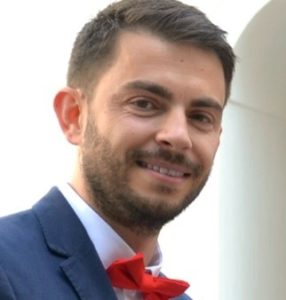 Laurentiu Bunescu
Laurentiu Bunescu
Head of Digital Education Programmes at Fundatia EOS Romania
Laurentiu Bunescu is currently Head of Digital Education Programmes at Fundatia EOS Romania. In his role, Laurentiu coordinates the major programmes run by EOS, as well as supporting the advocacy, networking and fundraising activities. He is also serving as a member of the Global Digital Literacy Council and as a member of ALL DIGITAL Board. Previously, he was the CEO of ALL DIGITAL in Brussels, a European network of digital competence centres, where he supervised the strategic development of the organization, the development of existing and new partnerships, and the growth of membership. Laurentiu is an expert in the fields of digital inclusion, digital competences and education, in a multi-cultural, international context. He is skilled in the management of digital competence centre networks, with a strong background in the non-profit sector and vast knowledge of the European digital inclusion policies and initiatives.
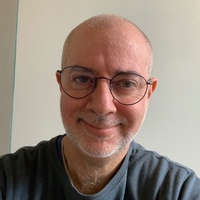 Paolo Russo
Paolo Russo
General Secretary at Stati Generali dell’Innovazione
https://statigeneralinnovazione.it
It is difficult for Paolo to give a name to his profession today, because for several years he has been doing a job that does not yet exist. When he tried to honestly answer the questions of the Italian government’s self-assessment tool, the system classified him as an astrologer or magician… it’s innovator’s curse. Certainly, for several years he has been acting as the General Secretary of the Stati Generali dell’Innovazione association in Italy.
Innovating and inventing are his great passions together with cats, mathematics and quantum models, arts and culture, Neil Gaiman’s novels and teaching young people. He feels privileged to belong to the generations who can first explore the new digital dimension of reality. For this reason he co-founded the CRHACK LAB F4D, where he plays with energy to create semantic value, trains young people to the not-yet existing jobs of the invisible digital cities and experiments on the generational transmission of digital cultural heritage.
He has a background as a member of several Italian government’s committees for digital development, and CEO of a few small companies in Italy and in the USA, where he also served as a representative of the State of Delaware for the development of cultural and commercial exchanges with Italy.
Linkedin: https://www.linkedin.com/in/paolo-russo-399b16/
 Jutta Schneider
Jutta Schneider
Project Lead at Helliwood media & education
With a pedagogical science degree, Jutta Schneider has been a project manager and member of the management team at Helliwood media & education at fjs e.V. for 11 years. She concepts, implements and manages educational initiatives and funding projects. Further she is a seminar leader, lecturer, and speaker for educational topics. Thereby she has been supervising the German initiative “Code your life” for 5 years and develops teaching scenarios and materials, e.g., The Turtle Book. As an expert for inclusive learning, she advises teachers, educators and multipliers in providing inclusive learning scenarios. Her mission is making children’s eyes shine and being a role model for teachers.
Esther Subias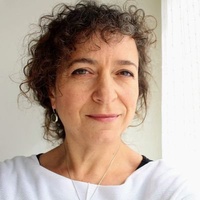
Project Manager at Colectic
Since 2006, Esther Subias has been a Project Manager at Colectic, a non-profit cooperative that works for social transformation through the participation, learning and socialization of ICT. She’s responsible for the development and implementation of many EU funded projects and has coordinated and contributed to the action of the networks Punt TIC and Omnia, which represent more than 600 telecenters in Catalonia (Spain). Esther Subias has a degree in Communication and she’s also a social educator; she holds a master’s degree in Education and ICT, a postgraduate in family mediation, community mediator. She is a manager of techno-pedagogical projects at Colectic, specialist in the educational and social use of ICT. She works as a consultant and trainer of trainers and teachers in several governmental and university projects. Esther is the author of various training materials aimed at teachers for the pedagogical implementation of ICT and ICT skills in education, and consultant and author of materials for many universities postgraduate programmes. Esther is Director of the Postgraduate studies in Ecosystems in Digital Learning: Innovation in Training at Barcelona’s University and she’s ambassador of Technovation Girls in Spain.


